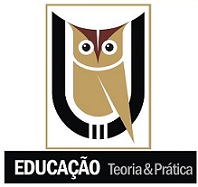O currículo de Harry Potter: representações de escola e currículo na literatura infanto-juvenil
Keywords:
Currículo. Pedagogia Cultural. Representação.Abstract
Este artigo tem como objetivo analisar as representações de escola e currículo divulgadas pela série de livros Harry Potter. Sucesso em todo o mundo, a série Harry Potter é composta por sete livros que contam as aventuras de um menino que, aos onze anos, descobre ser um bruxo e é enviado para a Escola e Magia Bruxaria de Hogwarts, onde aprenderá a usar seus poderes mágicos. Com base na vertente pós-estruturalista dos Estudos Culturais, considero que a representação não apenas apresenta uma realidade, mas atua ativamente na sua construção. O argumento desenvolvido é do que a escola entendida como ideal pelos livros é aquela que é um lar para professores/as e alunos/as, que é segura e que agrupa os/as estudantes segundo suas habilidades e características individuais. O modelo curricular divulgado pela série, por sua vez, é uma fusão do currículo científico com o currículo prático. Tendo em vista a abrangência dos livros, é importante compreender como a educação vem sendo divulgada em um artefato cultural não escolar endereçado para os/as jovens.Downloads
Published
How to Cite
Issue
Section
License
Authors who publish in this journal agree to the following terms:
a) Authors assign copyright to the journal, with the work simultaneously licensed under the Creative Commons Attribution License that allows sharing of the work with acknowledgment of authorship and publication in this journal.
b) The policy adopted by the Editorial Committee is to assign copyright only after a period of 30 months from the date of publication of the article. After this time, authors interested in publishing the same text in another work must send a letter to the Editorial Committee requesting the release of the assignment of copyright and wait for a response.
c) This journal provides public access to all its content, since this allows greater visibility and reach of published articles and reviews. For more information on this approach, visit the Public Knowledge Project, a project that developed this system to improve the academic and public quality of research, by distributing OJS as well as other software to support the public access publication system to academic sources. The names and email addresses on this website will be used exclusively for the purposes of the journal and will not be available for other purposes. This journal provides open any other party  This work is licensed under a Creative Commons License
This work is licensed under a Creative Commons License










